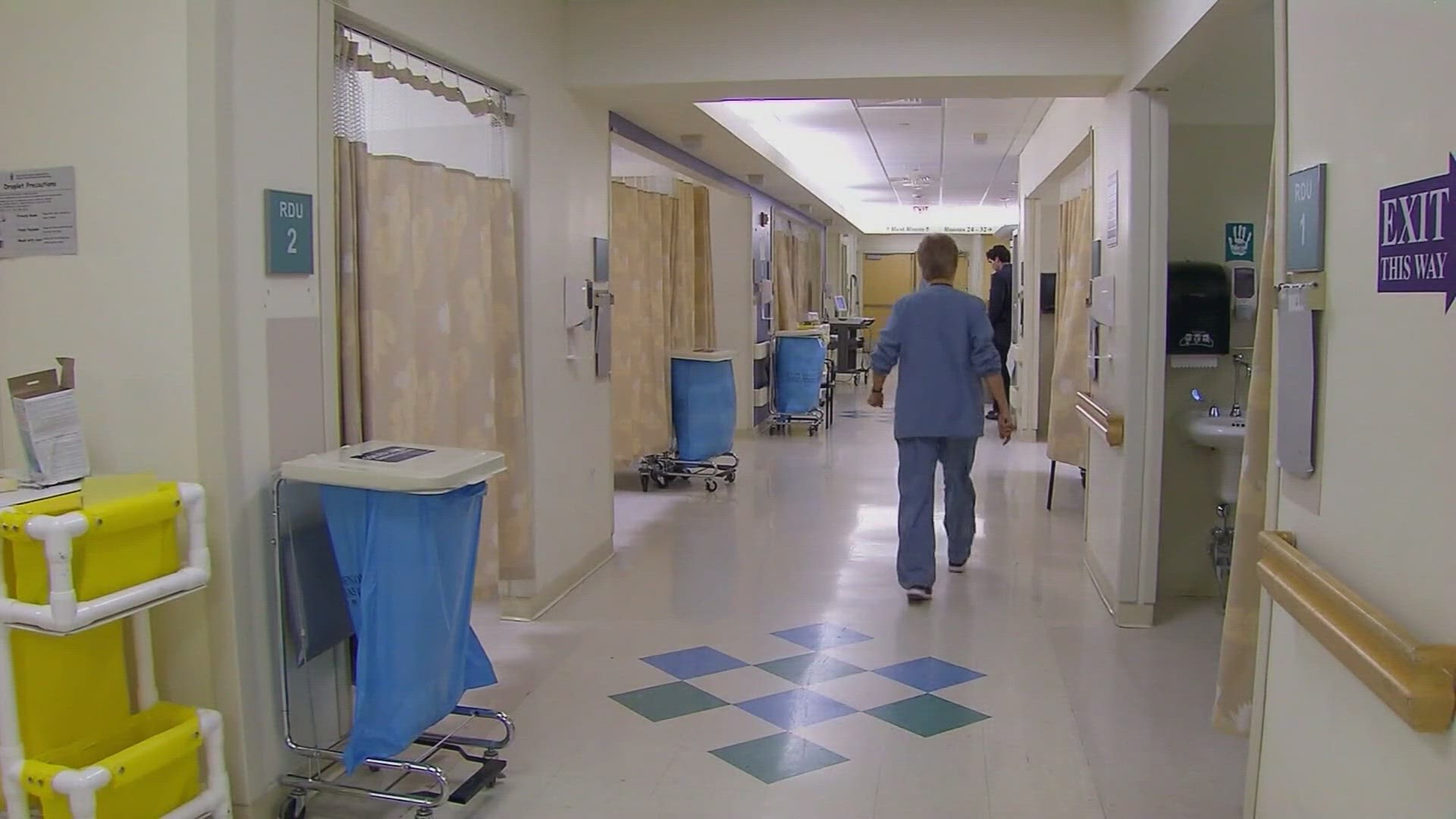WASHINGTON — Now that people are heading home from the holidays, some are bringing an unintended gift back with them — respiratory viruses.
Hospitals throughout the DMV said they are starting to see increases in COVID, the flu, and RSV.
Local doctors said cases of the Flu and RSV in particular are nearing pre-pandemic levels.
“Since 2020, I don't think we've had a typical year," Director of Infectious Diseases at Medstar Washington Hospital Center, Dr. Glenn Wortmann said. "In that first year, flu sort of went away, probably because everybody was masking. And I think right now, this is what we've seen with flu in the pre-COVID era, you know, we would always see a bump up with flu. And then COVID is still trying to figure itself out. Whether it's going to be a winter virus, summer virus, you know, none of us really know right now, we seem to see episodic ups and downs with COVID.”
Dr. Wortmann said RSV is also typically a blip in the winter time, and that’s starting to be more at pre-pandemic levels, too.
The DC Department of Health last published data on December 16 showing that flu case rates have been mostly increasing leading up to the holidays.
They also have listed COVID transmission as low for this past week.
Maryland has seen a relatively steady increase in COVID cases from the fall to the holidays and has flu illness activity listed as "High" for the week before Christmas.
For that same week in Virginia, the Department of Health reports flu activity as "Very High," with one recent pediatric death.
The VDH's COVID dashboard shows COVID-like illnesses currently make up about 12% of emergency department visits.
Kaiser Permanente Internal Medicine Physician Dr. Ashlee Williams said to pay attention to what your body is telling you and stay home if you're not feeling well.
“If you're having fevers, chills, body aches, a cough that's severe, you want to go ahead and stay home so that you can prevent spreading any kind of upper respiratory infection to others," Dr. Williams said. "And if you're going to be in a crowded space, where, you know, you're not as familiar with the crowd, or it's a possibility to be around someone sick, masking is still a great option.”
Both doctors also recommend getting a flu and COVID vaccine if you haven't yet this season.
"Having COVID is sort of like being vaccinated, right? You just got COVID. So your immune system got boosted up," Dr. Wortmann said. "It depends on how long ago you had COVID. If it's been four weeks, eight weeks since that episode, it would be worth getting vaccinated again. You know, every time you're vaccinated, or if you have a natural infection, you get this boost, but then it fades down. And so if you had COVID three months ago, it would be worthwhile getting the booster now."
He said it's difficult to tell exactly how long the respiratory virus season will last, but the flu season has extended into April in the past.
Dr. Wortmann also said it's impossible to tell on your own which virus you have, so air on the side of caution when deciding whether or not to stay home.
“I can't look at someone and say you have COVID, you have flu, you have Rhino virus, you have some other Coronavirus. I mean, they all look the same," he said. "People have upper respiratory tract infection, they feel terrible. So you can’t tell by looking at someone in general if you're sick or if your kid is sick. You should stay away from other people.”
Dr. Williams said even with cases currently rising, the severity of people's cases has been what they typically expect.
"People who are older -- over the age of 65 -- they can have increased severity of symptoms [than a] younger patient, so it really is individualized," she said. "So it's really important to check in with your primary care physician, whenever you are having symptoms, just to make sure that you're doing everything right at home, or if you need to come home."
Both agree, COVID is not going away, so just like the flu and RSV, people will have to learn to live with it and treat its symptoms appropriately.

